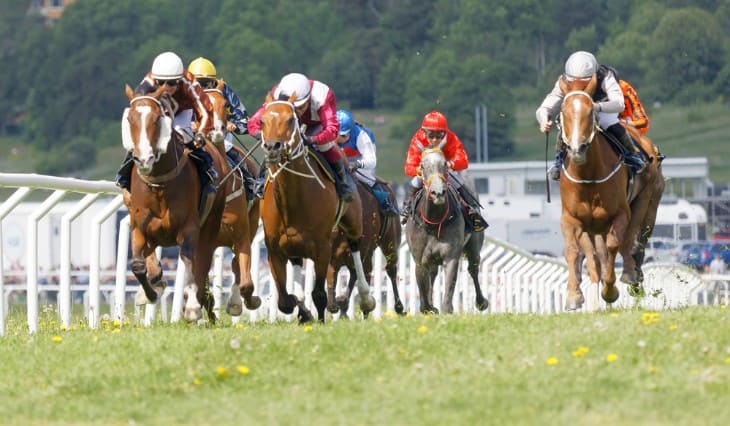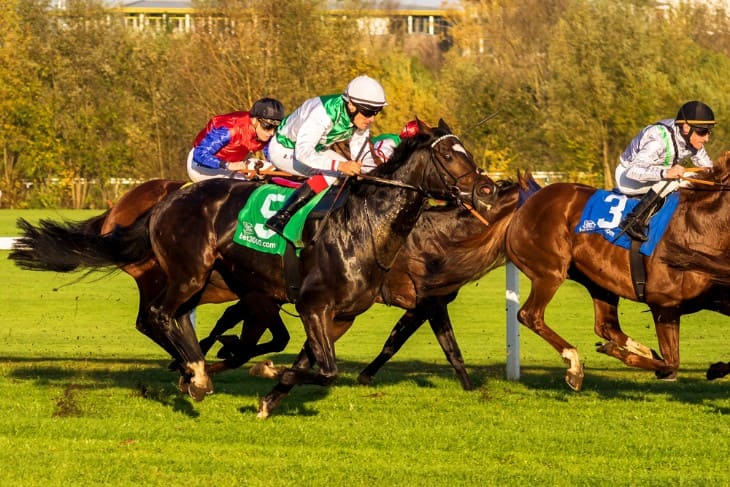Introduction
At the heart of every horse race lies a structured framework. A standard race typically consists of a set number of horses, each ridden by a jockey, competing over a specified distance. The horses are divided into age groups and genders to ensure fair competition. The objective is simple: to cross the finish line first. However, beneath this apparent simplicity lies a complex web of factors that can influence the outcome – the horse's form, the jockey's skill, the track conditions, and many others. Mastering these elements is the key to making informed punting decisions and setting yourself on the path to success in horse racing.
Key Players in Horse Racing
Jockeys, the athletes in the saddle, are the riders who guide the horses towards victory. Their skill, experience, and strategy play an integral role in determining the outcome of a race. A jockey's ability to communicate with the horse, understand its strengths and weaknesses, and make crucial decisions during the race can make all the difference between triumph and defeat. Punters must pay attention to jockeys' track records and form to gauge their potential impact on the race.
Trainers are the unsung heroes behind the scenes, responsible for the conditioning and preparation of the racehorses. They transform these equine athletes into competitive machines through rigorous training regimes. Understanding the trainer's track record and reputation can provide valuable insights into a horse's preparedness for a race. Owners, on the other hand, finance the venture and invest in acquiring and maintaining racehorses. Their financial backing is essential for nurturing talent and ensuring that horses receive the care and resources needed to succeed on the racetrack.
Deciphering Horse Racing Form
In the pursuit of becoming a successful horse racing punter, one must delve into the intricate world of horse racing form. The race card, a comprehensive document, serves as the blueprint for understanding a race and its contenders. It provides a wealth of information, including details about each horse's recent performances, jockey assignments, and even the weight they will carry in the race.
Analyzing the past performance data is an essential skill for punters. The race card presents a horse's recent racing history, showing its finishing positions, the tracks it has run on, and the distances it has covered. By examining these statistics, punters can identify patterns and trends that may indicate a horse's current form. For instance, a horse with a series of recent wins or top-three finishes is likely in good form, while one with a string of poor results may be struggling.
Furthermore, understanding the significance of a jockey's role is crucial when deciphering the form. Jockeys, with their unique riding styles and expertise, can have a profound impact on a horse's performance. Punters should not only assess the horse's past form but also consider the jockey's track record and compatibility with the horse. All of this information amalgamates to form a comprehensive picture of a horse's readiness for the upcoming race.

Placing Bets Wisely
Betting is the essence of punting in horse racing, and placing bets wisely is the cornerstone of success in this pursuit. The first step in this process is to grasp the various betting types available. In British horse racing, you can choose from a range of bets, including win, place, each-way, and exotic bets like forecasts and tricasts. Each bet type has its own set of rules and potential payouts, and understanding them is vital for making informed choices.
However, beyond bet types, bankroll management strategies are equally significant. A successful punter is not just defined by picking winners but by managing their betting capital judiciously. Establishing a clear and realistic betting budget, known as a bankroll, is essential. Punters should never wager more than they can afford to lose, and they should diversify their bets to spread risk. Additionally, setting staking limits for each bet and adhering to them ensures disciplined betting.
In horse racing punting, success is not solely determined by picking the right horse; it's also about making strategic bets that provide value over the long run. Punters should seek bets where the odds offered by bookmakers are favorable compared to their assessment of a horse's chances of winning. This approach, known as value betting, is a fundamental concept that can significantly improve a punter's overall profitability.
The Role of Odds in Punting
In the realm of horse racing punting, odds are the numerical representation of a horse's perceived chances of winning a race. Understanding how odds work is pivotal for making informed betting decisions. In British horse racing, odds are typically presented in two formats: fractional and decimal.
Fractional odds, the more traditional format, represent the potential profit in relation to the stake. For instance, if a horse has odds of 5/1, it means that for every £1 wagered, you would make a profit of £5 if the horse wins, plus your initial stake returned. In contrast, decimal odds include both the stake and profit in one figure. For example, odds of 6.0 indicate that a £1 bet would return £6 in total, including the initial stake.
Calculating payouts based on odds is a straightforward process. For fractional odds, you multiply your stake by the numerator (the first number) and then add the stake. In the case of decimal odds, you multiply your stake by the odds to calculate your total return, including your initial wager. Understanding odds not only helps punters assess potential returns but also aids in assessing the bookmakers' perception of a horse's chances. This knowledge can be valuable when deciding which bets to place.
Researching Horses and Tracks
In the world of horse racing punting, knowledge is power. To make informed betting decisions, punters must immerse themselves in research, starting with an in-depth study of the horses and the tracks they will be racing on. Studying a horse's history is an essential aspect of this research. It involves delving into the horse's past performances, including recent races, distances run, and track conditions. Analyzing a horse's form can provide valuable insights into its current state and potential for success in an upcoming race.
Furthermore, understanding the various factors that influence track conditions is vital. British racecourses can experience a wide range of surfaces, from firm to heavy, depending on weather conditions and maintenance. These conditions can profoundly affect a horse's performance. Some horses excel on softer ground, while others prefer a firmer surface. Punters who can accurately assess how a horse is likely to perform on a particular track condition gain a significant advantage.
Weather and Its Impact
Weather conditions have a profound impact on horse racing and can significantly affect the outcome of a race. Understanding the interplay between weather and racing is a crucial aspect of successful punting. In the United Kingdom, where the weather can be highly unpredictable, it's essential to adapt your betting strategy based on the prevailing conditions.
Trends and Statistics
In the world of horse racing punting, trends and statistics play a pivotal role in identifying potential winners. British horse racing has a rich history, and over the years, patterns have emerged that can provide valuable insights for punters.
One such trend is the historical performance of specific trainers or jockeys at certain racecourses. Some trainers have a remarkable track record at particular venues, indicating their expertise in preparing horses for those specific tracks. Similarly, jockeys may have a better success rate on particular types of horses or in certain race conditions. By studying these trends and statistics, punters can make more informed decisions when selecting their bets.
Another critical aspect is the form of horses. Analyzing a horse's recent performances and comparing them to similar races can reveal trends in their performance. For instance, some horses may consistently perform well in certain race types or on particular tracks. Recognizing these patterns can assist punters in identifying value bets and potential winners.

Staying Informed
In the fast-paced world of horse racing, staying informed is not merely an advantage; it's a necessity for punters seeking success. Racing news and updates serve as the lifeblood of informed betting decisions. Keeping abreast of the latest developments in the sport is integral to making well-informed choices.
Racing news sources, both online and in print, provide a constant stream of information about race meetings, horse form, jockey changes, and track conditions. These sources often feature expert analyses and insights that can be invaluable for punters. Following racing news not only helps punters identify potential contenders but also provides a broader understanding of the racing landscape.
Additionally, punters can tap into insider tips and sources for valuable information. Insider knowledge can include insights from trainers, jockeys, and stable staff, who may have unique perspectives on a horse's condition or racing strategy. While such information should be taken with a degree of caution and skepticism, it can sometimes provide a valuable edge when used judiciously. Staying informed through various channels allows punters to navigate the ever-changing world of British horse racing with greater confidence and precision.
The Psychology of Betting
Successful horse racing punting goes beyond just numbers and statistics; it also delves into the realm of psychology. Understanding the psychology of betting is vital for maintaining emotional discipline and making rational decisions.
Handling wins and losses is a fundamental aspect of punting psychology. Celebrating victories is natural, but it's equally important not to become overconfident. A single win should not lead to reckless betting behaviour. Conversely, dealing with losses requires resilience. Punters should avoid chasing losses by increasing their stakes, as this can lead to financial ruin. Instead, it's crucial to maintain a level head and stick to a predetermined betting plan.
[promotion:23]
Conclusion
In the world of horse racing punting, success is not guaranteed, but it is attainable through a combination of knowledge, discipline, and ethical practices. Understanding the basics of horse racing, appreciating the roles of key players, deciphering horse racing form, placing bets wisely, grasping the significance of odds, conducting thorough research, and staying informed are the building blocks of a successful punting journey. Additionally, being aware of the impact of weather, trends, and statistics, as well as embracing the psychology of betting, is essential.
For more information:







